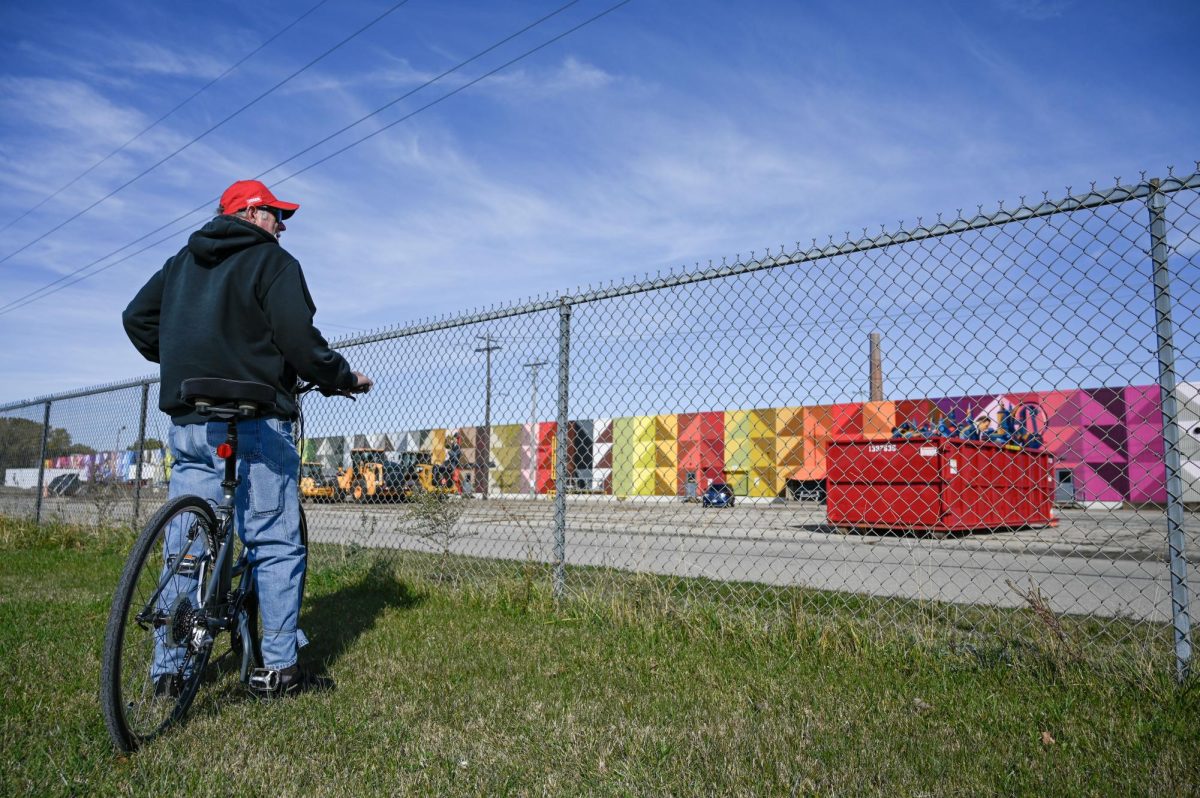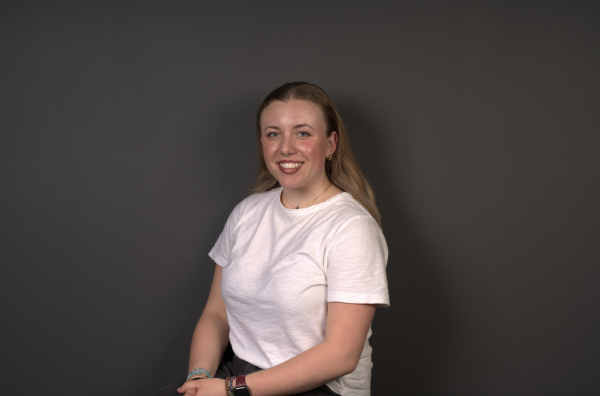The University of Wisconsin Oshkosh was in an $18 million deficit at the start of fiscal year 2024, leading the administration to release the Institutional Realignment Plan (IRP).
After 140 layoffs, 76 retirements and the closure of 35 open but unfilled positions, UWO expected the deficit to remain between $3 and $4 million.
On Thursday, July 6, UWO’s Chancellor Andrew Leavitt released a statement to the university that said the Universities of Wisconsin Board of Regents had received its annual budget updates, and UWO’s deficit was at $7.6 million.
In the statement, Leavitt called this number a “snapshot” of the budget’s actual standing.
“It was something that we were expecting, and as a matter of fact, it has already changed,” Leavitt said regarding the higher-than-anticipated deficit number.
The number is related to what Leavitt and Provost Edwin Martini call a timing issue.
“Last year, with the IRP, we did some very difficult work in the size of our overall number of employees, along with cutting other kinds of expenses,” Leavitt said. “Along with cutting other kinds of expenses, when an employee leaves, there are a number of payouts that have to occur, whether they’re laid off, or they go as part of an incentivized retirement, or they just simply leave.”
With the elimination of 250 positions, the administration was expecting a higher deficit to be reflected in the budget report – and $7.6 million was right in that range.
Leavitt’s July 6 statement said by the end of fiscal year 2026, UWO will have eliminated its structural deficit.
“The goal was always to have it done by 2026,” Leavitt said.
The administration is working on what they call “UWO 2.0,” a sustainable model for the university that includes building demolition, a new academic model and continued position control.
Some buildings on campus, like Gruenhagen Conference Center and Webster residence hall, are considerably older than others and costly to renovate. As of right now, some buildings are empty and unusable.
With demolition being more cost-effective than renovation, the state has agreed to cover those costs.
“The actual cost of demolition is going to be covered by the state itself and not by UWO, so that’s good news,” Leavitt said. “What we’re going to save on more than anything is the cost of utilities and the maintenance and the personnel it takes to maintain a facility.”
Last spring, the faculty at UWO voted on one of two new academic models for the university, and Provost Martini headed that project.
“Since the faculty voted to approve the model going forward, we spent all summer working on transitions and implementations, including preparing for the Board of Regents meeting,” Martini said.
Next week, Martini and Leavitt will present the academic restructuring plan in front of the Board of Regents and the Education Committee for formal approval.
“That will be the final piece we need to move ahead with the actual implementation over the course of the upcoming academic year,” Martini said.
Martini is confident that the Board of Regents and the Education Committee will be on board with the new academic model.
“As with all of these pieces, we’ve been coordinating very closely with the system,” Martini said. “They know what we’re up to, we’ve been keeping them informed. We’ve been keeping our shared governance partners and all of our faculty informed, and we expect this to go very smoothly next week.”
As part of the original IRP, faculty were not at risk of layoffs, and programs were not at risk of being cut. With the remaining deficit, Leavitt and Martini made it clear that there is still no plan of laying off faculty and there is no plan of cutting programs.
Leavitt also said that after the announcement of both the Fox Cities and Fond du Lac access campuses closing, all of the faculty from both campuses have been assimilated to faculty positions at UWO.
“Our entire academic restructuring process has been premised on our ability to do things differently and not lead with program cuts, not lead with faculty cuts,” Martini said. “And the model that we’ve proposed allows for enhanced interdisciplinary collaboration and curricular efficiencies within the schools that we’re creating.”
Martini said the new model will allow for new program configurations at the area level, department level and all the way up through the school level.
“It’s effectively now largely in the hands of the deans, the associate deans and the faculty to figure out where they can achieve some additional efficiencies,” Martini said. “Our biggest challenge in that area is that we have been too inefficient in the delivery of programs, so if we can figure out some of those pieces, we believe we will be in good shape to protect and preserve those areas of study.”
Martini and Leavitt said the university is “committed to strategically reallocating positions in areas where we are positioned for growth.”
Leavitt said he is “unequivocally” confident that UWO is moving in the right direction.
“We have a difficult year ahead of us,” Leavitt said. “No question this year is about maintaining a pretty rigid fiscal discipline. We’ve got to stay in budget.”
Leavitt said the administration is committed to managing financial surprises that happen with any large organization, and UWO is on the right track.
“I have not seen the faculty and staff more focused on wanting to move through this so that we can get to the day where we have a university that is balanced between the number of students we support, as well as faculty and staff we have,” Leavitt said.
Last year was a tumultuous time for the entire university. Through layoffs, protests and a vote of no confidence in Leavitt, Leavitt said he’s feeling reenergized and ready to go for the fall.
After the vote, Leavitt made the decision to expand the Chancellor’s cabinet to include shared governance representation – including representation from the Oshkosh Student Government.
“I will be attending regularly-scheduled shared governance meetings when, historically, I’ve only attended when invited,” Leavitt said. “Now, in an agreement with all four shared governance groups, I’ll be attending regularly. That way there will be much better communication.”
Leavitt said the vote was humbling, but also something that was needed to wake everyone up to the issues and the work that was in front of them.
“There’s [been] uncertainty all around us every year that I have been here … that’s just sort of the nature of the business,” Leavitt said. “I feel good, in a way. The confidence vote was very cathartic, I think, for both myself as well as the faculty. I think that we have a better understanding of one another.”









